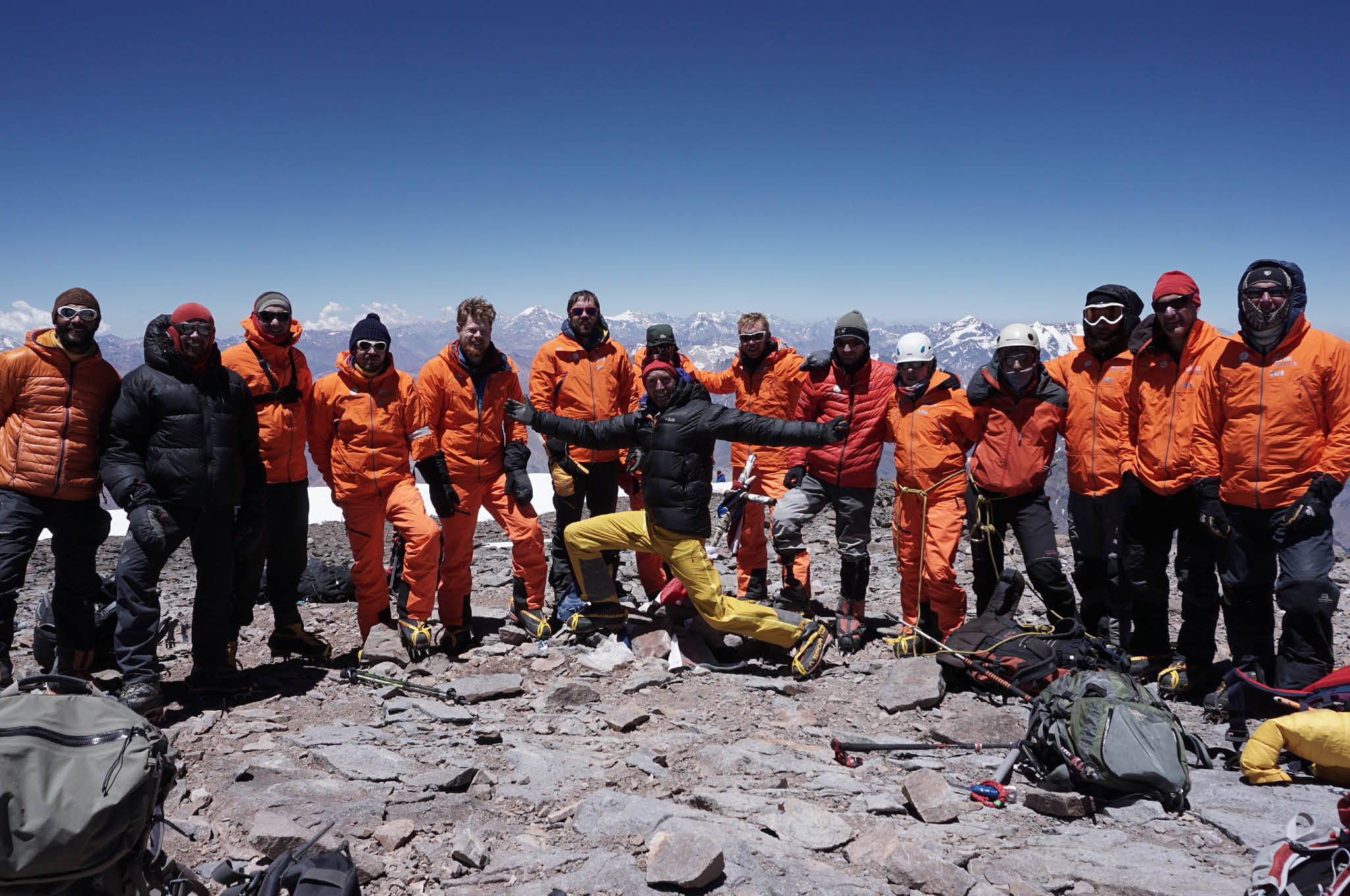an interview with Martin Hewitt
When I was injured on tour in Afghanistan in 2007 and was unable to continue my career in the military, I had to redefine myself. Realising that I thrived in leadership positions within a team environment, and with the benefit of more than two years’ full time officer’s training, I set up challenge events business Adaptive Grand Slam (AGS), leading people on life-changing expeditions of some of the most challenging and hostile environments imaginable.
This month is Disability Pride Month, and as everything I’ve wanted to do with AGS is about trying to get other people with disabilities to achieve things that they didn’t think they could or haven’t had the opportunity to, this feels like the perfect time to share my key lessons on being a leader.
Be flexible
Your organisation’s challenges change all the time. Ultimately, the best leaders are those that can demonstrate flexibility and change their leadership styles based on the environment they’re in, the people they’re leading and the task at hand. In the military, we really focused on practising different techniques and being able to adapt, but ultimately, it all comes down to knowing your people.
When putting our team through technical training and environmental training, we got to know them really well by being with them all the time. What would motivate them in one environment at one time was different to what would motivate them in a different environment at a different time, so having that flexibility was key.
Be selfless
So much of being a leader is about helping other people achieve their potential. More and more as time has gone by, I get more satisfaction out of seeing other people achieve their goals and push their boundaries.
Demonstrating selflessness as a leader will show your team that you care about their success and are willing to put their welfare above your own. That engenders loyalty. I would hope that the people I lead would say they recognise that I enjoy the challenge of leading under pressure, being with them and ultimately being responsible for them.
For me, the Sherpa Nepali professional climbers we’ve worked with at AGS are the ultimate illustration of selfless leadership. Helping my teams scale the heights of Nepal, they show a whole culture of professional standards about what they do and how they support the people that they’re working with.
Be a force for unity
A lot of the military’s leadership training focuses on how to lead different groups of people in really demanding environments where their lives are sometimes at risk. In my first platoon, I was responsible for junior ranked soldiers from all walks of life, from people with degrees who wanted to spend a few years in the military, travel the world and then get a job somewhere, to people from correctional institutions who had very different social demographic backgrounds.
Having such a cross section of people at the same rank, doing the same job, who’d all demonstrated that they could achieve the same standard to get in, but with different challenges and needs, made for a unique and challenging environment as a leader. It’s all about taking the responsibility of leadership seriously and looking after their differing needs, inspiring people to do what needs to be done.
Be prepared to learn through repetition
Some people make more natural leaders than others, but that doesn’t mean you can’t get better. The first time you do an attack in a training environment, you probably make quite a few mistakes. But by the time you’ve done 50, 60 or 100 attacks, it becomes a process, then you can focus more on other things that give you an advantage.
More importantly, when your people know the basics, and the basics are ingrained, so much is second nature and you have the bandwidth and the flexibility to be able to adapt and change your plan. For me, that is the most fundamental thing I’ve experienced from a leadership and a values perspective.
Be firm but supportive
It’s the leader’s responsibility to put a minimum standard of performance in place that everyone understands. From time to time, you’ll get someone who hasn’t hit the performance target. By providing the training they need and allowing them to gain experience in the role, you can give them the opportunity to demonstrate an uplift in their performance.
The reality in the military is that we need to be able to rely on that person to our left and our right in a combat situation. I had one instance where I felt I couldn’t trust a person to be professional in moving from one environment to another, so I removed that person from the position. They still stayed in the military, but not in an environment where they could potentially make a mistake.
Always communicate with each member of your team as an individual to understand any challenges they’re facing, either inside or outside work, that might be affecting their performance. Being able to empathise is a huge part of being a leader. But every organisation is under results pressure and everyone in your team has to be aligned towards achieving those non-negotiable performance and behavioural standards that help you achieve success.
Martin Hewitt is team leader and founder of Adaptive Grand Slam, a challenge events business which inspires, trains and enables disabled adventurers to take on the most extreme expeditions and challenges on the planet. Find out more about their incredible work here.
Share this:




